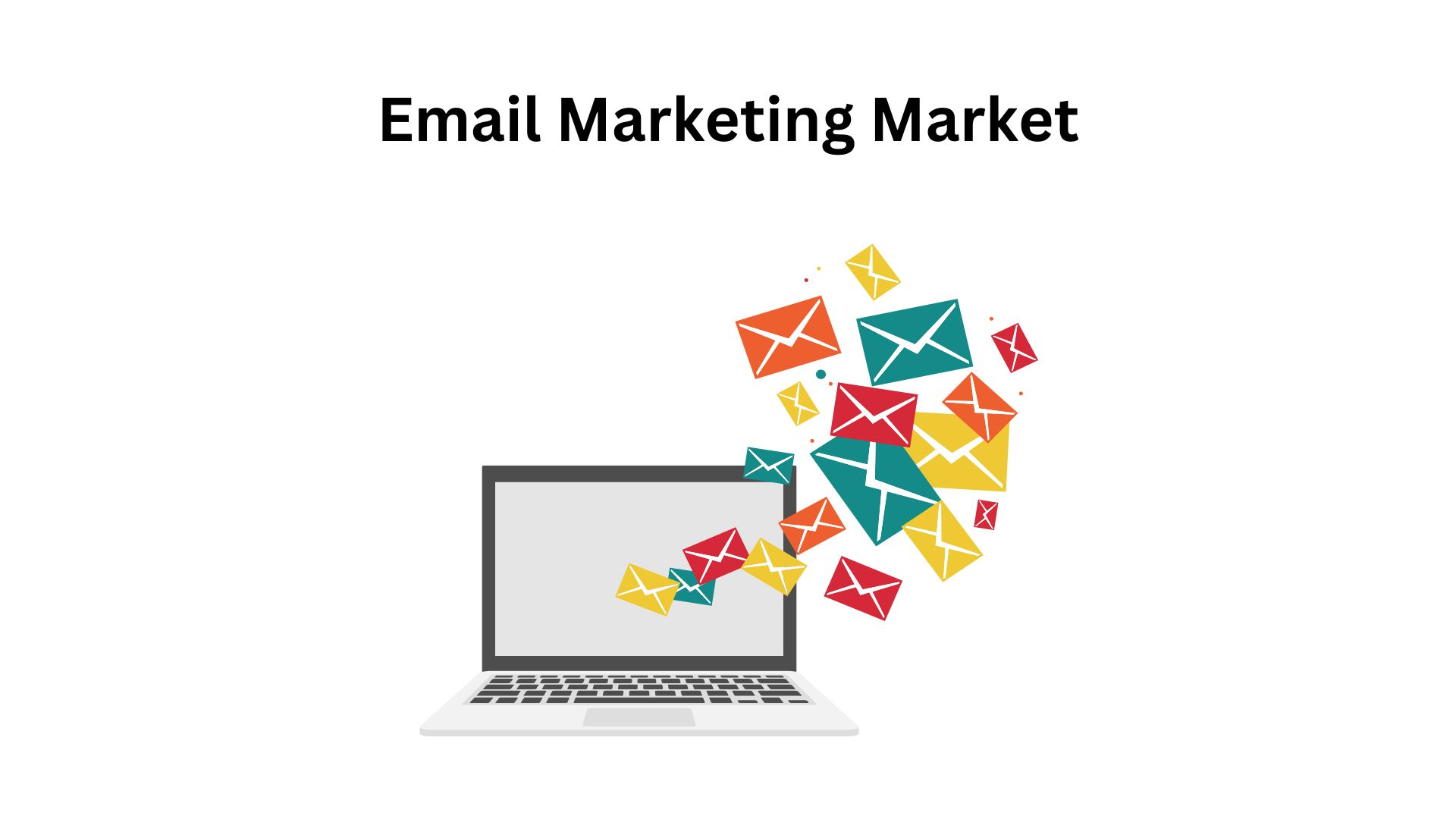Email Marketing Market To Grow At A Remarkable CAGR Of 14.0% During the Forecast 2032

WHAT WE HAVE ON THIS PAGE
Market Overview
Email marketing is the practice of sending email advertisements to promote a product or service to an intended audience. This form of promotion has been around for several years and proven successful at reaching customers and stimulating sales growth. With the emergence of digital marketing tactics like personalization and segmentation, email marketing has become even more crucial to companies’ overall marketing plans.
In recent years, the global email marketing market has experienced steady growth due to its increasing adoption as an effective method for reaching and engaging customers, as well as rising demands for personalized and targeted campaigns. Email marketing is a form of direct marketing that involves sending promotional emails or newsletters to a list of subscribers.
The global email marketing market is projected to expand from USD 5.8 billion in 2022 to a whopping USD 21.7 billion by 2032, expanding at an impressive compound annual growth rate (CAGR) of 14.0% over the forecast period.
Geographically, North America is expected to dominate the email marketing software market due to a number of leading vendors and growing adoption among businesses there. Europe and Asia-Pacific also look set for substantial growth in this space due to the growing prevalence of cloud-based email marketing solutions in these regions.

Drivers, trends, and challenges have an impact on market dynamics, which can impact businesses. Request for PDF sample report
Key Takeaways
- The global email marketing market is forecast to experience a compound annual growth rate (CAGR) of 14.0% between 2022 and 2032.
- The rising adoption of email marketing automation tools, the rising number of internet users, and an ever-increasing need for targeted marketing campaigns are some of the primary drivers of market expansion.
- North America is expected to dominate the email marketing market throughout the forecast period due to a number of large players present there and an increasing adoption rate among businesses.
- The Asia Pacific region is expected to experience substantial growth over the forecast period due to an increasing number of internet users and growing e-commerce popularity.
- However, factors such as rising concerns over data privacy and an uptick in ad-blockers pose a challenge to market expansion.
Regional Snapshot
- North America is the leading market for email marketing, with the United States being a major contributor to growth.
- Europe follows behind, with countries such as the United Kingdom, Germany and France driving market expansion.
- Asia Pacific: This rapidly developing market, particularly in countries like China and India, is experiencing tremendous expansion due to the increasing number of internet users and growing interest in e-commerce.
- The Rest of the World: This market is relatively small but growing, with countries such as Brazil and South Africa showing potential for expansion.
Drivers
Email marketing has several key drivers, such as cost-effectiveness. Businesses can reach a large audience for relatively little expense, making it attractive to businesses of all sizes.
Personalization: Email marketing allows businesses to customize their messages for each customer based on their interests, preferences and behavior. This level of personalization can help boost engagement and conversions.
Automation: Email marketing automation tools enable businesses to create and send targeted messages at specific intervals, making it simpler to reach the right audience at precisely the right time.
Measurable Results: Email marketing offers measurable outcomes, enabling businesses to monitor the success of their campaigns and make data-driven decisions based on that knowledge.
Mobile Optimizing: As mobile usage continues to rise, email marketing platforms have become more mobile-friendly, making it simpler for businesses to connect with customers on the go.
Integration with Other Marketing Channels: Email marketing can be combined with other platforms, like social media and content marketing, to form a comprehensive marketing strategy.
GDPR Compliance: With the implementation of GDPR, email marketing platforms have become more accountable and compliant with data protection regulations – making it safer for businesses to collect and use customer data securely.
Restraints
The email marketing market faces several obstacles, such as email overload. With the increasing volume of emails people receive every day, businesses may struggle to stand out and capture their audience’s attention.
Spam Filters: Email spam filters are becoming more sophisticated, making it harder for businesses to reach their intended audience.
Privacy Concerns: With the increasing emphasis on data privacy, businesses must exercise caution when collecting and using customer data; otherwise, they may not be able to personalize their messages effectively.
Competition: Email marketing is a fiercely competitive space, with many businesses fighting for the attention of the same audience.
Changing consumer behavior: Businesses must adjust their email marketing strategies in order to stay abreast of shifting preferences and trends.
Deliverability Issues: Even if businesses create compelling email campaigns, they may still face deliverability problems due to email providers blocking or filtering emails.
Limited Reach: Email marketing may not be effective for businesses targeting certain demographics, such as older generations who may not use email as frequently as younger ones do.
Opportunities
The email marketing market presents several prospects, such as personalization. Businesses can use personalization to craft more tailored and pertinent email campaigns that resonate with their subscribers, increasing engagement and conversions in the process.
Automation: Email marketing automation tools can save businesses time and resources by automating tasks such as segmenting their audience, crafting email campaigns, and analyzing results.
Integration with Other Marketing Channels: Email marketing can be integrated with other channels, like social media and content marketing, to form a comprehensive marketing strategy.
Data-Driven Insights: Analyzing email campaign data provides businesses with invaluable insights into their audience’s behavior, preferences and interests, allowing them to craft more successful email campaigns.
Mobile Optimization: As mobile usage continues to rise, businesses can take advantage of mobile-friendly email marketing platforms to reach customers on the go.
Niche Marketing: Email marketing allows businesses to target specific niches and subcultures with tailored messages that appeal directly to their interests and preferences.
International Reach: Email marketing can be used to extend a business’s reach beyond its domestic market by targeting audiences in different countries and languages.
Challenges
The email marketing market faces several obstacles, such as deliverability. With the increasing use of email filters and spam blockers, businesses must ensure their emails reach their intended recipients.
List Management: Businesses must regularly manage their email lists to guarantee they remain up-to-date, accurate, and compliant with data privacy regulations.
Engagement: Businesses must create engaging and relevant email campaigns to hold their audience’s attention in the ever-increasing volume of emails they receive daily.
ROI: Evaluating the return on investment (ROI) of email marketing campaigns can be challenging, as it’s hard to precisely gauge their effects on revenue or customer acquisition.
Privacy Concerns: Businesses must ensure they abide by data protection regulations such as GDPR and obtain explicit consent from their customers before collecting and using their personal data.
Creativity: With email marketing becoming more competitive, businesses must create captivating and creative email campaigns to stand out from their peers.
Technical Issues: Email marketing platforms may experience technical issues, such as downtime or glitches, which could negatively impact the delivery and effectiveness of email campaigns.
Recent Developments
- On March 2021, Campaign Monitor, a premier email marketing platform, announced the launch of their new marketing automation platform: Campaign Monitor Automation.
- Mailchimp, a well-known email marketing platform, announced the release of their AI-powered creative assistant, Mailchimp Presents, in October 2020.
- In August 2020, Constant Contact, a widely used email marketing platform, unveiled their new email automation offering: Constant Contact Automations.
Key Market Segments
Type
- Cloud Based
- On-premises
Application
- Small Enterprise
- Medium-sized Enterprise
- Large Enterprise
Key Market Players
- Oracle
- Zoho
- Wix
- Adobe
- Xert Communications
- Robly
- Remarkety
- Pardot
- com
- IBM
- Marketo
- Microsoft
- Act-On Software
- SimplyCast
- MailChimp
- Constant Contact
- AWeber
Report Scope
| Report Attribute | Details |
| The market size value in 2022 | USD 5.8 billion |
| Revenue forecast by 2032 | USD 21.7 billion |
| Growth Rate | CAGR Of 14.0% |
| Regions Covered | North America, Europe, Asia Pacific, Latin America, and Middle East & Africa, and Rest of the World |
| Historical Years | 2017-2022 |
| Base Year | 2022 |
| Estimated Year | 2023 |
| Short-Term Projection Year | 2028 |
| Long-Term Projected Year | 2032 |
Market Overview
Q: What is email marketing?
A: Email marketing is the practice of sending promotional messages or newsletters to a group of subscribers via email.
Q: Why is email marketing important?
A: Email marketing is important because it allows businesses to reach a large audience at a relatively low cost. It is also an effective way to engage with customers and build brand loyalty.
Q: What are some examples of email marketing campaigns?
A: Examples of email marketing campaigns include newsletters, promotional offers, welcome emails, abandoned cart reminders, and post-purchase follow-up emails.
Q: How can businesses measure the success of their email marketing campaigns?
A: Businesses can measure the success of their email marketing campaigns by tracking metrics such as open rates, click-through rates, conversion rates, and revenue generated.
Q: How can businesses improve their email deliverability?
A: Businesses can improve their email deliverability by using a reputable email service provider, cleaning their email list regularly, avoiding spam trigger words, and using a double opt-in process.
Q: How can businesses personalize their email campaigns?
A: Businesses can personalize their email campaigns by segmenting their email list, using the recipient’s name in the subject line and body of the email, and tailoring the content of the email to the recipient’s interests and behavior.
Q: How can businesses comply with data privacy regulations when collecting and using customer data for email marketing?
A: Businesses can comply with data privacy regulations by obtaining explicit consent from their customers before collecting and using their personal data, being transparent about how their data will be used, and giving customers the option to opt-out of receiving emails.
The team behind market.us, marketresearch.biz, market.biz and more. Our purpose is to keep our customers ahead of the game with regard to the markets. They may fluctuate up or down, but we will help you to stay ahead of the curve in these market fluctuations. Our consistent growth and ability to deliver in-depth analyses and market insight has engaged genuine market players. They have faith in us to offer the data and information they require to make balanced and decisive marketing decisions.









